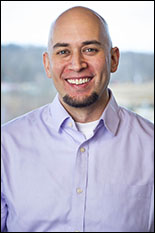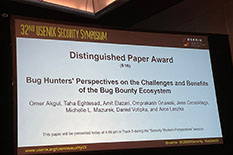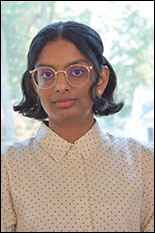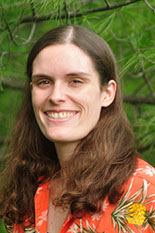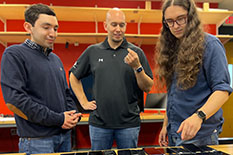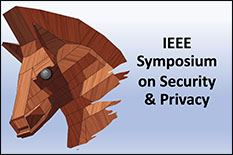News Story
UMD Alum Receives ACM SIGCOMM Doctoral Dissertation Award
Published June 26, 2023

A University of Maryland computer science alum whose research is focused on censorship and network security has been recognized for his graduate work in developing an algorithm that discovers ways to evade nation-state internet censorship.
Kevin Bock ’17, M.S. ’18, Ph.D. ’22, was chosen by the Association for Computing Machinery’s Special Interest Group in Communications and Computer Networks (ACM SIGCOMM) to receive the organization’s prestigious Doctoral Dissertation Award.
Established in 2011, the award honors outstanding research by doctoral candidates in the field of computer networking and data communication. Bock’s thesis, “Automating the Discovery of Censorship Evasion Strategies,” earned him a plaque, a $1,500 honorarium, and formal accolades at an upcoming ACM SIGCOMM conference.
The award-winning thesis introduced Geneva (short for genetic evasion), a novel artificial intelligence-based algorithm that automatically discovers how to manipulate packet streams to evade censors. Working with his adviser, Assistant Professor Dave Levin, and undergraduate students in Levin’s Breakerspace lab, the team deployed Geneva around the world against real-world censors in China, India, Iran, Turkmenistan, Kazakhstan, and other countries.
Geneva discovered dozens of innovative strategies, including many that exploit what appear to be bugs in nation-state censors. The researchers also developed the first known strategies for evading censorship strictly from the server without requiring any deployment of censorship evasion configuration, software or hardware within the censoring regime. These strategies have since been deployed in numerous censorship evasion tools, helping users worldwide gain access to unfiltered information.
Justine Sherry, an assistant professor of computer science at Carnegie Mellon University who chaired the ACM SIGCOMM award’s nomination committee, wrote: “[We] found the work to be technically sophisticated, combining a wide range of insights to tackle a challenging and longstanding problem. The impact of the work is exceptional: it has transformed the field of censorship research and is poised to have long-term societal benefits.”
Known as a “genetic” algorithm, Geneva uses a biologically inspired type of artificial intelligence that works in the background as a user browses the web from a standard browser. Like biological systems, Geneva forms sets of instructions from genetic building blocks. But rather than DNA, Geneva uses small pieces of computer code as those building blocks. Individually, the bits of code do very little, but when composed into instructions, they can execute sophisticated evasion strategies for breaking up, arranging or sending data packets.
Levin, who is a core faculty member in the Maryland Cybersecurity Center, said that Bock’s work with Geneva has been both inspiring and that it has left an ongoing legacy. He noted that much of the research involved undergraduate students, including their contributing to numerous academic papers.
“Throughout the course of his dissertation work, Kevin personally advised more than two-dozen undergraduate students, giving them a robust, hands-on research experience and the opportunity to publish their work at major security conferences,” Levin said.
Many of these students have gone on to pursue graduate degrees themselves, Levin adds.
The work by Bock and Levin has been featured in multiple media outlets, including a clip by Voice of America in 2021 that was ultimately shown worldwide in multiple languages.
Bock is currently working as a senior software engineer with Amazon Web Services. He is also a lecturer in the University of Maryland’s Advanced Cybersecurity Experience for Students (ACES) program, sharing his knowledge with undergraduates eager to learn security measures that can have a positive real-world impact.
Bock, who earned his undergraduate degree with the first graduating cohort of ACES in 2017, is quick to reinforce that point.
“I not only want to teach the technical aspects of cybersecurity, but also show others that computing and technology—particularly as it relates to security and censorship—can greatly affect people’s lives on a global scale,” he said.
Bock also recognizes the teamwork required to make projects like Geneva successful.
“I am honored to receive this award from ACM SIGCOMM,” he said, “And I am thankful to the tremendously talented students that Dave and I were able to bring into this project. We couldn’t have been successful without their input and hard work.”
—Parts of this story are adapted from a 2019 news article written by the College of Computer, Mathematical, and Natural Sciences.
